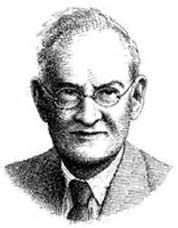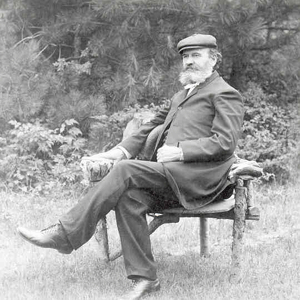A Quote by Saint Francis de Sales
The truly patient man neither complains of his hard lot nor desires to be pitied by others. He speaks of his sufferings in a natural, true, and sincere way, without murmuring, complaining, or exaggerating them.
Related Quotes
There is no hope for the world unless and until we formulate, accept and state publicly a true moral code of individualism, based on man's inalienable right to live for himself. Neither to hurt nor to serve his brothers, but to be independent of them in his function and in his motive. Neither to sacrifice them for himself nor to sacrifice himself for them.
He was a foe without hate; a friend without treachery; a soldier without cruelty; a victor without oppression, and a victim without murmuring. He was a public officer without vices; a private citizen without wrong; a neighbor without reproach; a Christian without hypocrisy, and a man without guile. He was a Caesar, without his ambition; Frederick, without his tyranny; Napoleon, without his selfishness, and Washington, without his reward.
When a warrior fights not for himself, but for his brothers, when his most passionately sought goal is neither glory nor his own life's preservation, but to spend his substance for them, his comrades, not to abandon them, not to prove unworthy of them, then his heart truly has achieved contempt for death, and with that he transcends himself and his actions touch the sublime. That is why the true warrior cannot speak of battle save to his brothers who have been there with him. The truth is too holy, too sacred, for words." -Suicide (Gates of Fire)
Man—every man—is an end in himself, not a means to the ends of others; he must live for his own sake, neither sacrificing himself to others nor sacrificing others to himself; he must work for his rational self-interest, with the achievement of his own happiness as the highest moral purpose of his life.
Christianity set itself the goal of fulfilling man’s unattainable desires, but for that very reason ignored his attainable desires. By promising man eternal life, it deprived him of temporal life, by teaching him to trust in God’s help it took away his trust in his own powers; by giving him faith in a better life in heaven, it destroyed his faith in a better life on earth and his striving to attain such a life. Christianity gave man what his imagination desires, but for that very reason failed to give him what he really and truly desires.
Men and women are made for each other, but their mutual dependence differs in degrees; man is dependent on woman through his desires; woman is dependent on man through her desires and also through her needs; he could do without her better than she can do without him. She cannot fulfill her purpose in life without his aid, without his goodwill, without his respect.....Nature herself has decreed that woman, both for herself and her children, should be at the mercy of man s judgment.
In handling men, there are three feelings that a man must not possess-fear, dislike and contempt. If he is afraid of men he cannot handle them. Neither can he influence them in his favor if he dislikes or scorns them. He must neither cringe nor sneer. He must have both self-respect and respect for others.
We begin life with the natural, next we come into the spiritual; but then, when we have truly received the kingdom of God and His righteousness, the natural is added to the spiritual, and we are able to receive the gifts of His providence and the blessings of life without becoming centered in them or allowing them to separate us from Him.
How admirable and beautiful is the simplicity of the Evangelists! They never speak injuriously of the enemies of Jesus Christ, of His judges, nor of His executioners. They report the facts without a single reflection. They comment neither on their Master's mildness when He was smitten, nor on His constancy in the hour of His ignominious death, which they thus describe: "And they crucified Jesus.





































